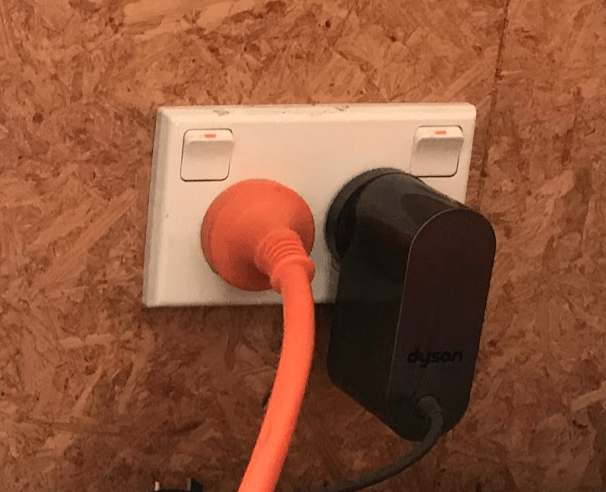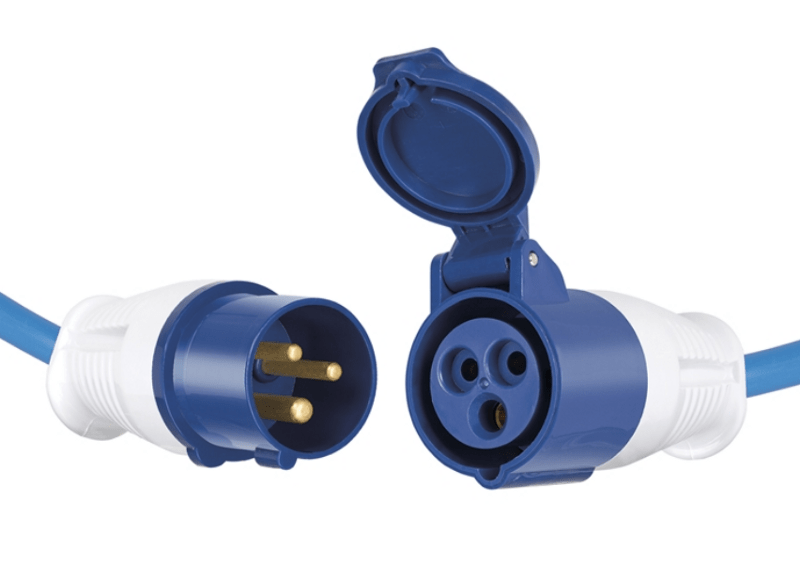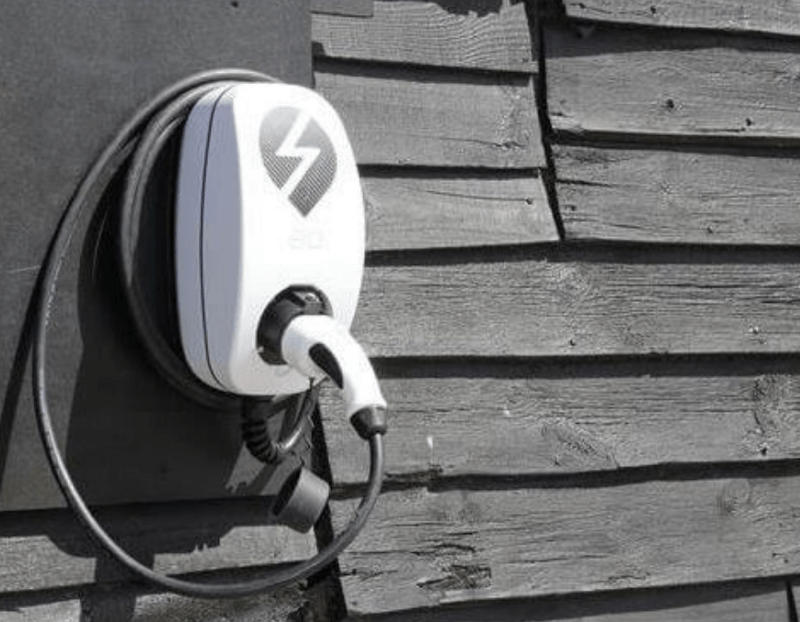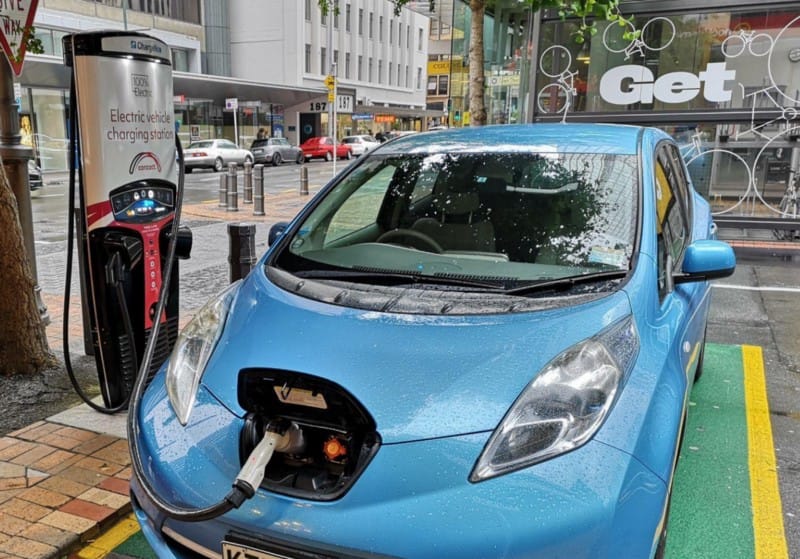EV Q&A —Charging: do you need a special plug at home?
23 May 2019
Most people with electric cars (EVs) normally need to charge up the battery every 2 or 3 days. If you have a newer car with a larger battery, you might go a week without charging. If you drive longer distances in an older EV, you might need to charge daily.
Regular household socket
You can plug your car into a regular power socket. Maybe you have one in your garage, or perhaps you have an outside charging socket. Either of these will charge up the car battery, but at a slower rate. Most (maybe all) EVs come with a cable that connects the car socket to a household socket.
 Standard household socket used for EV charging
Standard household socket used for EV charging
Most of the Nissan Leaf style cars will take all night to recharge an empty battery. Newer EVs such as the Kia Niro EV or the Hyandai Kona have much larger batteries, and a refill from empty would take all day and night on a standard household socket.
In our case, we use this option when we travel away from home. We plug our Nissan Leaf into a household socket, and it charges up slowly overnight. It’s generally at, or near, 100% by the morning.
Caravan style socket
You normally only see these at camp grounds, but they can be a good and fairly cheap option for charging an electric car. These sockets have thicker wiring and allow a faster charge. They are often weatherproof, so are a good option for outside charging.
 Caravan style plugs
Caravan style plugs
These plugs (and cabling) are usually rated for 16 or 32 amps, which is about 2–3 times quicker than your regular household power socket.
In our case, we had one of these sockets (the 16 amp version) professionally installed by an electrician. We get about 15% of charge every hour, so a mostly empty car can be up to 100% in an afternoon.
We had to buy a special charging cable with the caravan style plug on one end. This cost around $600 from Australia.
Wall chargers
If you have room in your garage, then a wall charger is another option. They cost between $1000 and $2000 and charge at rates of 30 amps and above. You’d need a newer electric car to take advantage of the faster charging rates.

Very expensive fast chargers
If money is not a factor, you can have a DC fast charger installed. These will typically charge at 50 amps, which means your car will fully charge in around about an hour. I believe they are around about $20,000.
If I park on the road do I need some sort of extension cord from my house?
If you have no garage or off-street parking, your charging options are limited. You could install a charge socket at the edge of your boundary, but you are not allowed to drape an extension cord over the footpath.
Your options would include:
- Charge away from home at a fast charger (see section below)
- Charge at work
- Talk to your local council
There are not a lot of options really. The Wellington City Council is starting an on-street charging trial, but there are very few of the charge points installed as yet.
Public fast chargers
Alternatively, you could use one of the many public fast chargers that are available in all cities (and many small towns), and on most highways in New Zealand (see map).
 Fast charger in downtown Wellington
Fast charger in downtown Wellington
The costs of using the ChargeNet fast chargers are 25c per minute plus 25c per kilowatt hour. For a Nissan Leaf needing a typical top-up of 20 kWh, you should expect a bill of around $15.
My advice
If you can charge in your garage from a regular power socket, do this for zero setup cost. See if the charge times are satisfactory for your circumstances. If not, then look at either a caravan charger or a dedicated wall charger.
Related posts
- Cheaper EV coming to NZ from MG
- Battery upgrades for older Nissan Leafs
- Driving from Taupo to Wellington in an EV
- Driving to Whakapapa in a Nissan Leaf
- New electric van in NZ
- EV Q&A: Sounds eco-friendly in that it doesn’t use fossil fuel, but what about the batteries?
- EV Q&A: Is it gutless on the hills?
- EV Q&A — Is this EV thing just a fad or is it here to stay? Got evidence?
- EV Q&A — If I go up a hill, do I gain power when I go down?
- EV Q&A — Do the cars cost more than petrol cars?
- Traveling to Palmy in an Electric Vehicle